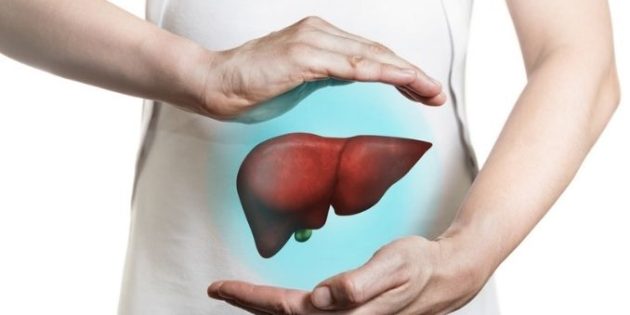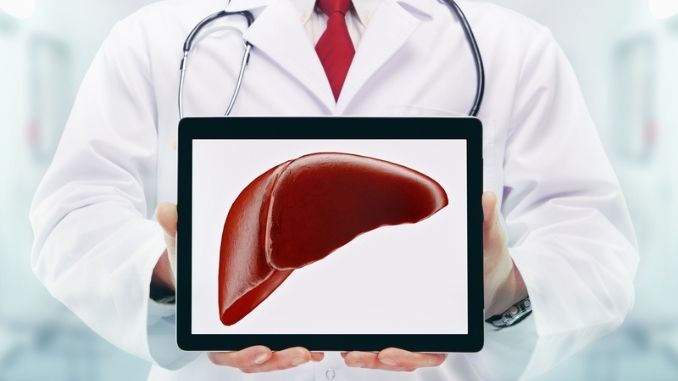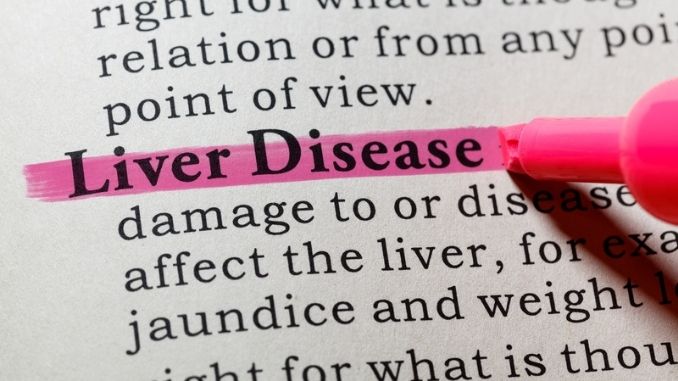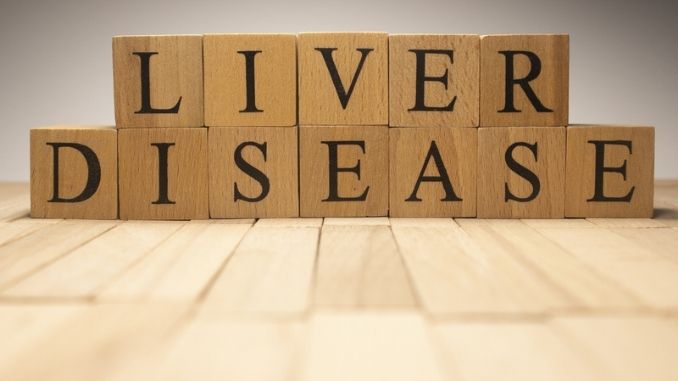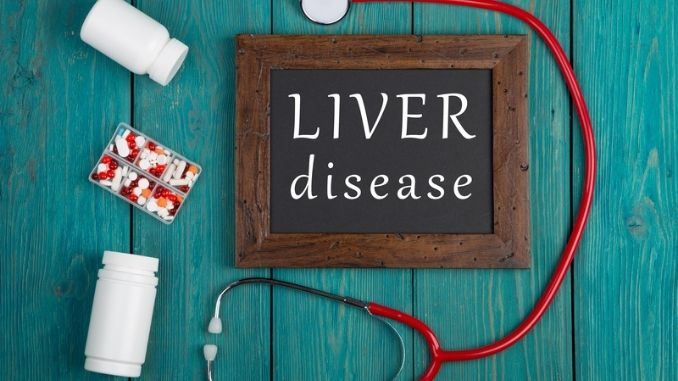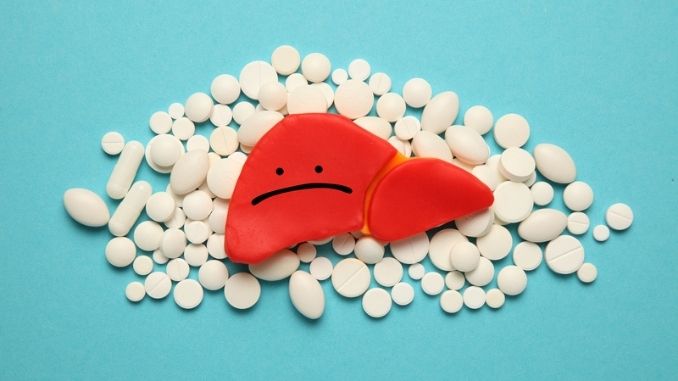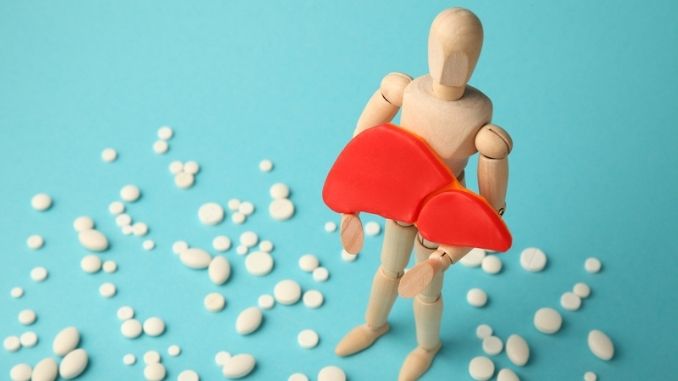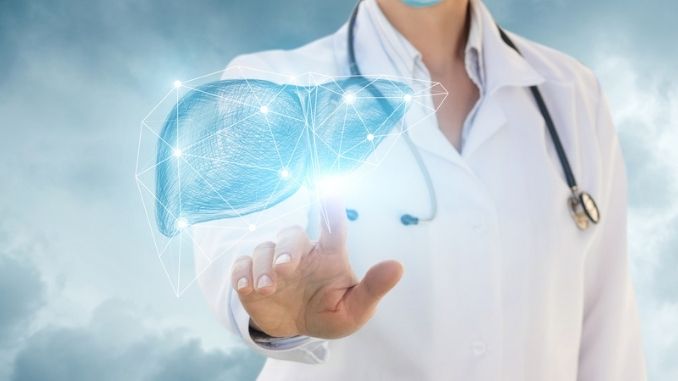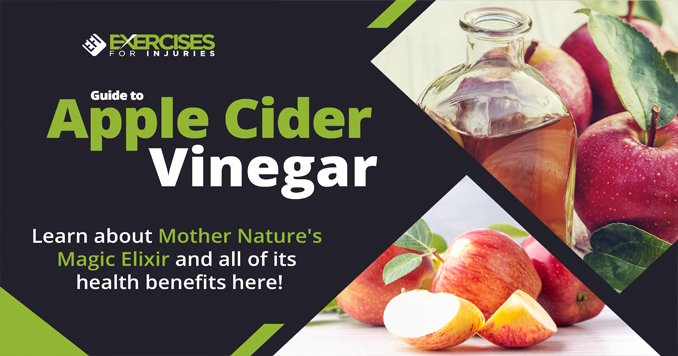Have you ever wondered how food passes through your body? The human body ingests vital nutrients from the foods you consume, but it needs to filter out the waste by-products that can be toxic. The liver is responsible for processing these harmful substances and excreting them in the form of feces. A healthy liver is a key part of the human body and plays a crucial role in digestion, metabolism, and the storage of energy. Your liver also produces various vitamins, breaks down toxins, and removes excess sugars in your blood.
The liver is the largest human organ and is essential for survival. It is a dark-reddish brown, cone-shaped organ that weighs approximately 1500 grams. The two sources of blood for the liver are the hepatic artery, which supplies oxygenated blood, and the hepatic portal vein, which supplies nutrient-rich blood.
Functions of the Liver
Amazingly, the liver can regenerate itself. It is considered the ‘chemical factory of the body and is responsible for detoxifying potentially harmful chemicals. The liver breaks down harmful substances, and the by-products are excreted into the bile or blood. These bile by-products then enter the intestine and leave the body through feces. The liver also metabolizes drugs for easier usage by the body. There are about 500 tasks that the liver performs, including:
- Plays a role in carbohydrate, protein, and fat metabolism. The liver breaks down fats and converts excess carbohydrates and protein into forms that can be stored for later use.
- Storage & activation of vitamins and minerals. The liver stores all fat-soluble vitamins (vitamin ADEK), iron, zinc, copper, magnesium, and vitamin B12.
- Synthesizes proteins and transports vitamin A, iron, zinc, and copper.
- Converts carotene to vitamin A, folate, and vitamin D to their active forms.
- Processes hemoglobin to use its iron content
- Bile Production. The liver forms and excretes bile, which helps carry away waste. Bile is responsible for turning fats into energy that the body uses and is necessary for digestion.
- Conversion of ammonia to urea. The liver detoxifies ammonia by converting it to urea, 75% of which is excreted by the kidneys.
- Conversion of glucose. The liver helps maintain a healthy level of blood sugar in the body. It supplies glucose when needed and converts glucose to glycogen for storage when there is too much.
- Metabolism of Steroids. The liver excretes and inactivates steroids such as aldosterone, glucocorticoids, estrogen, progesterone, and testosterone.
- Detoxifies drugs and alcohol.
- Immune response. The liver removes bacteria from the bloodstream and creates immune factors resistant to infections.
Diseases of the Liver
The liver performs numerous functions that keep the body working properly, so it’s unavoidable to encounter health problems that keep the liver from doing its job properly. Liver diseases can be acquired or inherited, acute or chronic, and caused by various factors such as viruses, alcohol, and obesity. Liver diseases may have no noticeable signs or symptoms, but when left untreated can cause significant damage and even become life-threatening. But in most cases, the liver may heal with early detection and treatment. Some symptoms to watch for include:
- Jaundice (eyes and skin is yellowish)
- Abdominal pain and swelling
- Swelling in the legs and ankles
- Dark urine and pale stool
- Itchy skin that bruises easily
- Nausea, vomiting, and loss of appetite
- Chronic fatigue
Inherited Liver Diseases
There are two common hereditary liver diseases, Hemochromatosis and Alpha – 1 Antitrypsin Deficiency. Hereditary diseases run in the family.
Hemochromatosis is a liver disease where the body stores too much iron from consumed foods. The iron deposits collect in the liver, heart, and other organs, leading to life-threatening conditions.
Alpha – 1 Antitrypsin Deficiency: A liver disease were an important liver protein is either lacking or at lower than normal levels. People with this condition can still produce liver protein, but the disease prevents it from entering the bloodstream and accumulating in the liver. Alpha – 1 antitrypsin protein plays a role in protecting the lungs from infections and damage.
Acute and Chronic Liver Diseases
Acute Liver Disease – Rapid loss of liver function usually happens in days or weeks with no preexisting liver condition. The most common cause is viral or drugs. This is less common than chronic liver disease. This condition can cause serious complications, such as bleeding and increased Pressure in the brain, a medical emergency that requires hospitalization. Hepatitis A, Hepatitis B, and Hepatitis E can cause acute liver failure.
Signs and symptoms may include:
- Yellowing of your skin and eyeballs (jaundice)
- Pain in your upper right abdomen
- Abdominal swelling (ascites)
- Nausea
- Vomiting
- A general sense of feeling unwell (malaise)
- Disorientation or confusion
- Sleepiness
- The breath may have a musty or sweet odor
- Tremors
Management & Treatment
Acute liver failure can develop quickly and is fatal, so it is important to seek treatment immediately. Treat acute liver damage; in most cases, treatment involves controlling complications and giving the liver time to heal. The most important aspect of treatment in patients with acute liver failure is to provide good intensive care support. Careful attention should be paid to fluid management and hemodynamics.
Treatments may include:
Screening For Infections
Blood and urine samples are tested for infection. If the doctor suspects that there might be an infection, medications are provided to treat the infection.
Reducing Pressure Caused by Excess Fluid in The Brain
Cerebral edema increases Pressure on the brain. Medications can help reduce fluid buildup.
Preventing Severe Bleeding
Medications are given to reduce the risk of bleeding. If you are losing a lot of blood, your doctor will likely perform tests to determine the source of the blood loss. Blood transfusions may be required.
Providing Nutritional Support
If you’re unable to eat, you may need supplements to treat nutritional deficiencies.
Medication
Ingesting toxic substances, acetaminophen overdose, or viral hepatitis causes acute liver failure and can be treated through medication. These include the following:
- Activated Charcoal: High temperatures expose carbon to create activated charcoal, which is effective at absorbing toxins because of its increased surface area.
- Antiviral Therapy: Antiviral therapy includes a variety of medications that will slow down the effects of the hepatitis virus.
- N-Acetyl Cysteine: This is a derivative of amino acid that is highly effective in treating the effects of acetaminophen overdoses as well as mushroom poisoning.
- Penicillin: When given high doses, this common antibiotic can combat toxins such as mushrooms.
- Transplantation: When acute liver failure can’t be reversed, the only treatment may be a liver transplant. This involves removing the diseased liver and replacing it with a healthy donor.
Chronic Liver Disease
Cirrhosis is the final stage of chronic liver disease. This is the progressive deterioration of liver functions for six months or longer. It is characterized by continuous inflammation, destruction, and regeneration of liver tissues, leading to Cirrhosis.
Chronic liver diseases include alcoholic liver disease, chronic viral hepatitis, including hepatitis B and C, non-alcoholic fatty liver disease (NAFLD), and hemochromatosis.
Signs and symptoms may include:
- Fluid buildup in the belly (ascites)
- Vomiting blood, often from bleeding of the blood vessels in the food pipe (esophagus)
- Gallstones
- Itching
- Yellowing of the skin and eyes (jaundice)
- Kidney failure
- Muscle loss
- Loss of appetite
- Easy bruising
- Spider-like veins in the skin
- Low energy and weakness (fatigue)
- Unexplained Weight loss
- Confusion as toxins build up in the blood
Management & Treatment
Chronic liver disease happens over time. When diagnosed, managed, and treated early, liver damage can often be reversed. The goal of treatment is to slow down the buildup of scar tissue and prevent or treat other health problems. Recommendations include:
- Eating a well-balanced, nutritious diet
- Avoiding certain toxins, such as alcohol
- Supplementing with vitamins
- Managing any complications
Specific personalize treatment for Cirrhosis is determined based on:
- Age, overall health, and medical history
- The extent of the disease
- Tolerance for specific medications, procedures, or therapies
- Expectations for the course of the disease
- Patients’ opinions or preference
- Treatment Options
Specific treatments are as follows:
Alcohol Abuse Treatment
To protect the liver from the extra workload created by processing excess alcohol, one should immediately limit or stop alcohol consumption. It can be difficult to stop drinking alcohol, especially if addicted. There is help available that includes:
- Joining support programs that help alcoholics in particular
- One-on-one counseling with a therapist
- Inpatient rehab programs
- Prescription medicines like naltrexone (Revia, Vivitrol) and acamprosate (Campral)
NASH Treatment
NASH is non-alcoholic steatohepatitis, a non-alcoholic fatty liver disease (NAFLD). This can cause liver scarring and lead to Cirrhosis. There is no medication to reverse the fatty buildup, but controlling the conditions that contribute to it can help stop liver damage. Vitamin E is often prescribed for people who have NASH.
Hepatitis Treatment
Hepatitis B and C viruses cause liver damage that can lead to Cirrhosis. Treatment for these diseases can help prevent liver damage. For hepatitis C, there are now antiviral treatments that can cure most people.
Non-Alcoholic Fatty Liver Disease Treatment
This is a buildup of fat that damages the liver. You can get it if you’re overweight or obese. Losing some weight through diet and exercise is one way to combat this liver damage. As with any liver disease, it is important not to drink alcohol and, in some cases, avoid taking vitamin E.
Autoimmune Hepatitis and Primary Biliary Cirrhosis Treatment
The body’s natural defense system (immune system) attacks and damages the liver. Primary biliary Cirrhosis destroys the bile duct — the tube that carries the digestive fluid (bile) from the liver to the gallbladder and intestine. Doctors treat autoimmune hepatitis with steroid drugs and other medicines that stop the immune system from attacking the liver. Side effects may include weight gain, diabetes, weak bones, and high blood pressure. On the other hand, the main treatment for primary biliary Cirrhosis is to slow liver damage with the drug ursodiol (Actigall, Urso). Ursodiol can cause side effects like diarrhea, constipation, dizziness, and back pain.
Liver Transplant
A liver transplant replaces a liver that is no longer functioning with a healthy one from a donor. This may prolong your life, but it’s major surgery with risks like bleeding and infection. After surgery, you’ll need to take medicines to prevent your body from rejecting the new organ. Because these drugs suppress your immune system, they can increase your risk for infection.
Causes of Liver Disease
Whether inherited, acute, or chronic, below are the most common causes of liver disease,
Infections
This manifests when the liver is inflamed due to an infection primarily caused by some parasite or virus. These viruses attack the liver and cause damage. People can contract infections through blood or semen, contaminated food or water, or close contact with an already infected person. The most common infections are Hepatitis A, Hepatitis B, and Hepatitis C.
Immune System Irregularity
The human body’s normal immune response is to attack invaders like bacteria and viruses, but in this case, the immune response becomes abnormal to the point of attacking the liver. Examples of autoimmune liver diseases include Autoimmune Hepatitis, Primary Biliary Cholangitis, and Primary Sclerosing Cholangitis.
Abnormal Cell Growth
Cancers and tumors can be found in the liver but seldom start in the liver. Usually, these cells come from the lungs, colon, or breasts. This includes liver cancer, bile duct cancer, and liver adenoma.
Heredity
Children have a higher risk of inheriting the condition if one or both parents have an abnormal gene that can cause liver damage. Genetic Liver diseases include Hemochromatosis, Wilson’s Disease, and Alpha-1 antitrypsin deficiency.
Additional Causes of liver disease include chronic alcohol or drug abuse, improper herbal compound usage, and non-alcoholic fatty liver disease.
Cleansing the Body Cleaner
The liver is considered the primary cleaner of the body, removing toxins as waste products and metabolizing nutrients and medications to provide the body with some of its most important proteins. Given its tough job and being fundamental in the body’s filtration system, the liver needs optimal care and should be kept healthy to function properly. Many claims are coming out in the market today about cleansing or detoxing the liver, but these claims are still under investigation and need more studies to support these declarations. However, there are natural steps we can take to help our liver stay healthy and undamaged.
Optimal Water Intake
Water is the best flushing agent for your liver. Drinking at least 8-10 glasses of water each day helps the liver and kidneys flush out waste.
Regular Exercise
Exercise is also essential to have a healthy life. It helps you maintain a healthy weight that will reduce your risk of developing lifestyle diseases such as diabetes, high blood pressure, and high blood sugar, which are known to be related to fatty liver disease.
Eat Healthily
This may sound redundant, but choosing quality, organic, and pesticide-free foods that include fresh vegetables, fruits, and whole grains will help keep your liver healthy. There are specific foods that can positively help cells heal and replenish.
- Berries – This includes blueberries, raspberries, and cranberries. These fruits contain antioxidants called polyphenols, which may help protect the liver from damage.
- Grapefruit – Grapefruit contains two antioxidants, naringin, and naringenin, which may help protect the liver from injury by reducing inflammation and protecting the liver cells. One study conducted in 2019 showed that naringin protects against alcohol-induced liver steatosis by reducing oxidative stress. However, some medications can negatively interact with grapefruit, so it is best to check with your doctor before adding grapefruit to your diet.
- Grapes – Purple and red grapes are very liver-friendly food. There have been human studies surrounding grapes and grape seed extract safeguarding the liver from damage, increasing the levels of antioxidants, and fighting inflammation.
- Tea – Tea has multiple health benefits, including those for the liver. Green and black tea may help improve enzymes and fat levels in the liver. Though, caution must be practiced when consuming green tea extract, as it may cause damage.
- Other Whole Plant Foods – Other foods that are helpful for the liver are avocados, carrots, bananas, broccoli, citrus fruits or lemons, papaya, kale, collards, watermelon, brown rice, oatmeal, and figs.
Other Diet & Lifestyle Recommendations
Cut Unhealthy Fats
Plant-based foods such as almonds, coconuts, walnuts, chia seeds, flaxseeds, and pumpkin seeds contain healthy fats. You can also consume them from animal sources such as eggs and fatty fish. Try to avoid or limit common fats in processed and fast foods as much as possible.
Limit Sugar Intake
The liver plays a role in maintaining healthy blood sugar levels. Ingesting too much sugar can exhaust your liver function.
Manage Stress
Managing your body’s control cortisol levels will reduce stress on the liver. Meditation and yoga can help.
Preventative Measures
Prevention is always better than cure, and many liver diseases are preventable with the following measures:
Get Vaccinated
Vaccines for Hepatitis A and Hepatitis B are now available. You can consult with your doctor if you have not been vaccinated.
Drink Alcohol in Moderation
Moderate drinking considered one drink a day for women and up to two for men, or less, is recommended for optimal liver function.
Use Medications Properly
Use medications only as prescribed. Don’t mix medications and alcohol. Before using any herbal supplements, it is best to consult your doctor.
Avoid Contact with Other People’s Blood and Body Fluids
Accidental needle sticks or improper cleanup of blood or body fluids can spread hepatitis viruses. If you are getting a tattoo or getting your ears pierced, take note of the cleanliness of the shop.
Practice Proper Hygiene
Always wash your hands before and after you handle food. If you are new to a certain country, use bottled water for drinking.
Protect your skin and nose from aerosol sprays and other toxic chemicals
When using aerosol sprays, always follow the manufacturer’s instructions and ventilate the area well. Use a mask and gloves to avoid inhaling the aerosol and protect your skin from contaminating the chemicals.
The liver is the filtration mechanism of the human body. With its role in many essential bodily functions, it’s imperative to keep this vital organ clean and functioning well for optimal health and well-being. To do so, focus on living a healthy lifestyle with a balanced diet, adequate sleep, regular exercise, and regular consultation with your health practitioner to give your liver the care it deserves.
Diet and nutrition, including supplements, are the key to wellness. Learn how apple cider vinegar can improve your health here.
